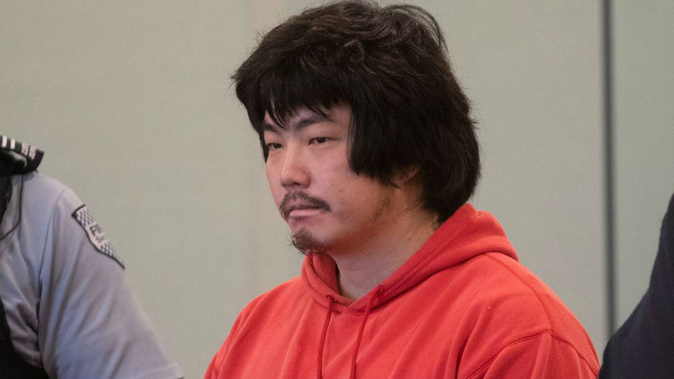
Fresh medical evidence and claims the judge erred when directing the jury are reasons for an Auckland murderer to have his conviction quashed, his lawyers argue.
Gabriel Yad-Elohim's defence team filed papers with the Court of Appeal on Friday after he was found guilty of murder by a High Court jury in August over a defence of not guilty by reason of insanity.
Yad-Elohim, a delusional 30-year-old man with a history of mental illness, delivered an estimated 90 blows to Michael Mulholland's head and body after pulling him from the front door of the 69-year-old's Western Springs flat on September 26 last year.
The grounds for the appeal, seen by the Herald, included claims the trial judge, Justice Gerard van Bohemen, erred when instructing the jury the defence had a more difficult case to prove insanity.
It also said "fresh evidence" was now available from forensic psychiatrist Dr Krishna Pillai's report on September 17.
The report referred to Yad-Elohim's presentation on August 30, three weeks after the jury's guilty verdict and three weeks before he was sentenced to life imprisonment by Justice van Bohemen.
The assessment occurred when Yad-Elohim was remanded to the Mason Clinic, Auckland's regional forensic psychiatry services unit.
Led by Annabel Cresswell, the defence indicated it would call on psychiatrist Dr Justin Barry-Walsh to give his expert opinion on the new report at the appeal hearing.
The defence also claim Justice van Bohemen attached undue weight when making his closing remarks to the Crown's criticisms of the defence's expert psychiatrist Dr James Cavney and his evidence.
The judge further gave insufficient weight to criticisms advanced by the defence of Crown psychiatrist Dr Peter Dean, the defence argues.
"The trial judge incorrectly stated in summing up that defence counsel did not criticise Dr Dean whereas she had closed on the basis that Dr Dean did not move from his conclusions. His Honour therefore gave a false impression of the defence position to the jury," the appeal papers said.
This month, the Herald also revealed leaked documents which showed doctors at Auckland's acute mental health facility, where Yad-Elohim was a patient just three days before the killing, were told to focus on discharging patients when at maximum capacity.
The clinic, Te Whetu Tawera, was at full 58-bed capacity when Yad-Elohim was released.
The Mental Health Adult Service Escalation Plan for occupancy at the Auckland District Health Board's (ADHB) unit shows a clinic wide policy of "one out, one in" when the beds are full.
It also shows funding can also be accessed for motel accommodation for up to one week to facilitate discharges for patients.
In an exclusive interview with the Herald, Mulholland's daughter earlier said New Zealanders are being let down by the mental health sector and innocent people are paying for it.
"People do get it wrong, human error ... I don't blame the doctors for releasing him early but I do blame that there shouldn't have been a need to release someone early," she said.
Dr Peter McColl, the service clinical director at Te Whetu Tawera, said at trial the facility would have discharged Yad-Elohim sooner had suitable accommodation been found.
"It was a good discharge, it was well thought through ... This is what we do," McColl said.
Yad-Elohim self-presented at Auckland City Hospital's emergency room on September 17 last year before later being admitted to Te Whetu Tawera.
However, before Yad-Elohim's release a doctor noted the patient, who has a history of meth use and non-compliance with taking medication, was "still" having hallucinations to kill.
But McColl told the court his colleague was "mistaken" and neither he nor his staff had "dropped the ball".
An external review, which the ADHB has refused to release publicly, of Yad-Elohim's treatment also came to light during the trial.
In part, it read Te Whetu Tawera was under "considerable occupancy pressure" at the time which "contributed greatly to a hasty discharge".
"Overall the reviewers have not identified any substantial care delivery problems that may have contributed to the event prompting the review," it states.
Some recommendations were made, which are being implemented.
Justice Gerard van Bohemen also called for a "thorough examination" of what led to Yad-Elohim's release from Te Whetu Tawera.
"The fact that you brutally killed a defenceless older man, days after being found to be suitable for release into the community, warrants external examination," he said.
Yad-Elohim's sentence includes a minimum period of imprisonment of 13 years.
Take your Radio, Podcasts and Music with you









